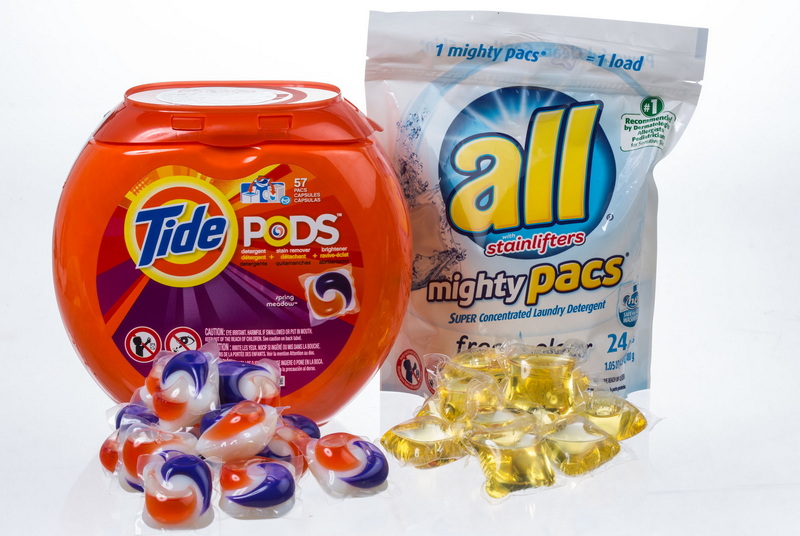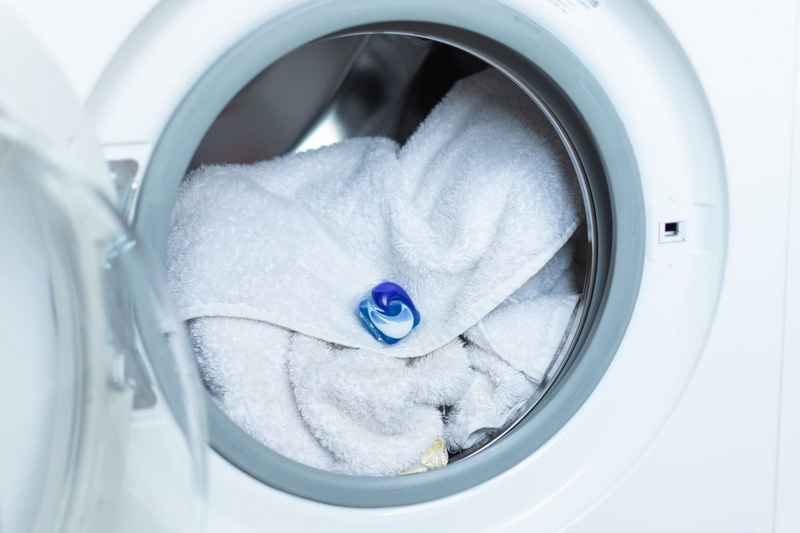Dongguan UFine Daily Chemical Co.,Ltd.
- All
- Product Name
- Product Keyword
- Product Model
- Product Summary
- Product Description
- Multi Field Search
Views: 222 Author: Tomorrow Publish Time: 10-23-2025 Origin: Site











Content Menu
● Typical Laundry Pod Counts Per Bag
● Factors Determining Pod Count in Bags
>> Brand and Marketing Strategies
● Advantages of Buying in Bulk vs Small Bags
>> Bulk Bags
>> Small Bags
● How to Choose the Right Number of Laundry Pods for Your Household
● Proper Usage of Laundry Pods for Best Efficiency
● Environmental Considerations About Laundry Pods Packaging
● Common Misunderstandings About Laundry Pods Quantity
● Storing Laundry Pods to Maintain Quality
● Using Laundry Pods in Different Washing Machines
● Cost Comparison Between Laundry Pods and Traditional Detergents
● FAQ About Laundry Pods Quantity
>> 1. How many laundry pods are usually in a standard bag?
>> 2. Can I use more than one pod per load for tough stains?
>> 3. Are laundry pods in bigger bags cheaper per pod?
>> 4. How long do laundry pods last in the bag?
>> 5. Is it safe to store laundry pods in a bulk container?
Laundry pods have revolutionized the way people do laundry, providing convenience and efficiency in a small, pre-measured package. One of the most common questions consumers ask is: how many laundry pods are in a bag? This article explores the typical quantities of laundry pods per bag, factors that determine the pod count, usage tips, and how to choose the right quantity for your household needs.

Laundry pods are compact packets containing a blend of detergent, stain remover, and sometimes fabric softeners. They dissolve in water during washing, eliminating the need for measuring or pouring liquids or powders. This convenience makes them popular in households and among busy individuals.
The number of laundry pods in a bag generally ranges from a small pack of 12 or 15 pods to bulk bags containing over 100 pods. Here are some standard packaging sizes:
- Small bags: 12, 15, or 20 pods
- Medium bags: 30, 35, or 40 pods
- Large bags: 50, 60, or 70 pods
- Extra-large or bulk bags: 90, 100, or more pods
Each size suits different usage needs, whether for a single person, a family, or commercial use.
Several factors affect how many pods a bag contains, including the brand, marketing strategy, user preferences, and intended use.
Different brands package laundry pods according to their customer base's preferences. Premium brands may sell smaller packets with higher costs per pod, while value brands often offer bulk packaging with more pods at a lower price per unit.
Laundry pods are designed for individual wash loads. Families or heavy users may prefer larger bags, while singles or infrequent users might opt for smaller quantities to avoid storage issues or expiration concerns.
Manufacturers consider packaging logistics. Larger bags reduce plastic use but can be heavier and less convenient. Smaller bags provide portability but may increase packaging waste.
- Economical cost per pod
- Less frequent shopping trips
- Ideal for large families and frequent users
- Often come with resealable packaging to keep pods fresh
- Better for infrequent users
- Easier to store and carry
- Reduced risk of detergent degradation over time
- Convenient for those living alone or with limited laundry loads
Choosing the right bag size depends on your laundry frequency and storage preferences.

Assess your laundry frequency, load size, number of household members, and storage conditions. Here's a simple method:
- Calculate the average loads per week.
- Multiply by approximately 4.33 weeks for monthly use.
- Choose a bag size that roughly matches or slightly exceeds this figure.
For instance, if you do 8 loads weekly, a 35 to 40 pod bag will cover a month comfortably. Keep in mind that pods are designed for one load each, so buying a bag that suits your washing habits ensures you don't waste detergent or storage space.
Using laundry pods correctly ensures the best results and prevents damage to garments or machines. Keep these tips in mind:
- Use one pod per standard load unless your machine or detergent instructions say otherwise.
- Place the pod directly into the drum, not the detergent dispenser drawer.
- Do not cut or open pods, as the detergent can spill and can irritate skin.
- Use cold or warm water settings compatible with your detergent pods.
- Avoid overdosing by using more pods than necessary; excess detergent can leave residues and harm appliances.
Following these guidelines helps maintain the quality of your clothes and the washing machine.
While laundry pods are convenient, their packaging often uses plastic materials. Some brands are adopting environmentally friendly biodegradable films and reducing package sizes to minimize waste. Choosing pods with eco-conscious packaging supports sustainable laundry routines.
Furthermore, pods reduce the risk of detergent spills and overdosing, which can minimize chemical runoff into wastewater compared to loose detergents. However, consumers should remain mindful of disposal and recycling options available for the packaging.
Many users think more pods per load increase cleaning power, which is unnecessary and wasteful. One pod per load is usually sufficient. Overuse can lead to detergent buildup on clothes and washing machines, causing issues over time.
Another common misconception is about expiration. While pods do have a shelf life, they should last about a year if stored properly, so buying very small bags frequently is not always necessary.
Proper storage helps maintain pod quality and prevents accidental exposure to moisture or children. Use a sealed container, store in a dry area, and keep out of children's reach.
Pods are sensitive to humidity and temperature, which can cause them to dissolve prematurely or clump together. Keeping them in a cool, dry, and secure place preserves their effectiveness.
Laundry pods work in both high-efficiency (HE) machines and traditional washers. However, some pods are specially formulated for HE machines and may not perform as well in non-HE washers. Always check the pod packaging to ensure compatibility with your washing machine type.
Laundry pods tend to be priced higher per load than traditional liquid or powder detergents, reflecting the convenience factor. While pods simplify laundry, users should consider whether the added cost fits their budget, especially for large households or frequent laundry.
The number of laundry pods in a bag varies widely depending on brand, user needs, and packaging choices. Typical quantities range from 12 to over 100 pods per bag. Consumers should choose based on their laundry frequency and household size. Proper usage and storage maximize pod effectiveness and longevity. By understanding these factors, users can select the best laundry pod bag size for convenience, economy, and efficiency, while also considering environmental impact and product compatibility.

Most standard bags contain between 30 to 40 pods, suitable for monthly household usage.
Typically, one pod is enough. For tough stains, pretreatment or a specialized detergent is better than doubling pods.
Yes, larger bags generally offer a lower cost per pod compared to smaller packs.
When stored properly in a dry, cool place, pods can last up to 12 months without loss of effectiveness.
As long as the container is sealed to keep out moisture and children, storing pods in bulk containers is safe and convenient.